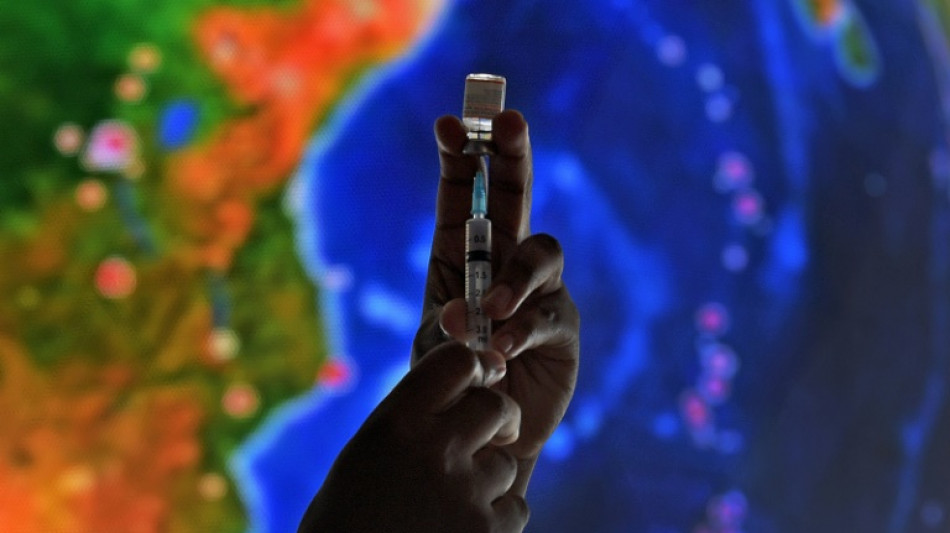
-
 Microsoft raises Xbox prices globally, following Sony
Microsoft raises Xbox prices globally, following Sony
-
US stocks rise on Meta, Microsoft ahead of key labor data
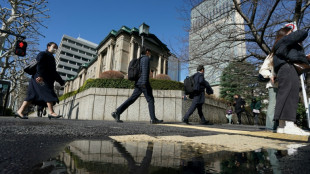
-
 Toulouse injuries mount as Ramos doubtful for Champions Cup semi
Toulouse injuries mount as Ramos doubtful for Champions Cup semi
-
Guardiola glad of Rodri return but uncertain if he'll play in FA Cup final
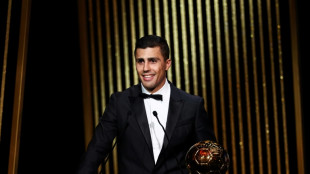
-
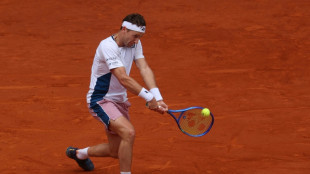 Ruud sails past Medvedev into Madrid Open semis
Ruud sails past Medvedev into Madrid Open semis
-
'Not a commodity': UN staff rally over deep cuts
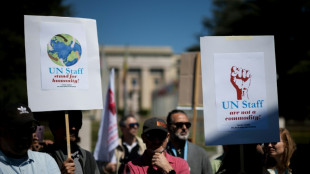
-
 Flintoff proud as Afghan refugee protege plays for Lancashire second team
Flintoff proud as Afghan refugee protege plays for Lancashire second team
-
Peruvian cardinal accused of abuse challenges late pope's sanction
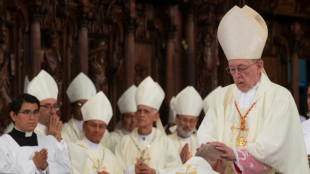
-
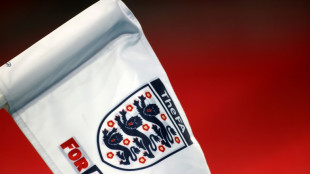 Trans women barred from women's football by English, Scottish FAs
Trans women barred from women's football by English, Scottish FAs
-
Oil prices drop, stocks diverge amid economic growth fears
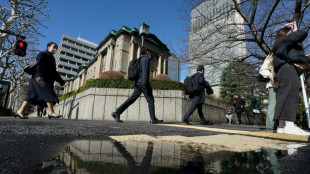
-
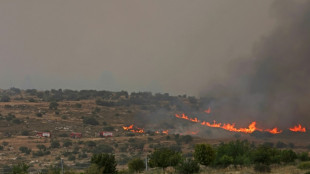 Israel brings fire near Jerusalem 'under control', reopens roads
Israel brings fire near Jerusalem 'under control', reopens roads
-
Lopetegui appointed coach of Qatar

-
 UK counter-terrorism unit probes rappers Kneecap but music stars back band
UK counter-terrorism unit probes rappers Kneecap but music stars back band
-
Yamal heroics preserve Barca Champions League final dream

-
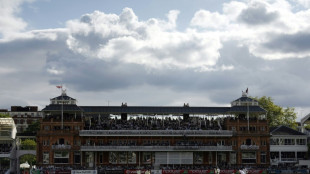 2026 T20 World Cup 'biggest women's cricket event in England' - ECB
2026 T20 World Cup 'biggest women's cricket event in England' - ECB
-
Bangladesh begins three days of mass political rallies

-
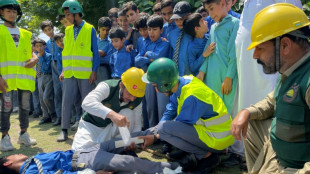 Children learn emergency drills as Kashmir tensions rise
Children learn emergency drills as Kashmir tensions rise
-
Millions of children to suffer from Trump aid cuts
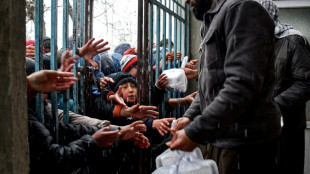
-
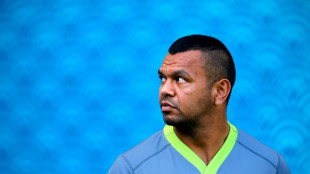 Veteran Wallaby Beale set for long-awaited injury return
Veteran Wallaby Beale set for long-awaited injury return
-
Syria's Druze take up arms to defend their town against Islamists

-
 Tesla sales plunge further in France, down 59% in April
Tesla sales plunge further in France, down 59% in April
-
US calls on India and Pakistan to 'de-escalate'

-
 Israel reopens key roads as firefighters battle blaze
Israel reopens key roads as firefighters battle blaze
-
Europe far-right surge masks divisions

-
 James will mull NBA future after Lakers playoff exit
James will mull NBA future after Lakers playoff exit
-
Ukraine's chief rabbi sings plea to Trump to side with Kyiv

-
 Australian mushroom meal victim 'hunched' in pain, court hears
Australian mushroom meal victim 'hunched' in pain, court hears
-
Lakers dumped out of playoffs by Wolves, Rockets rout Warriors

-
 Booming tourism and climate change threaten Albania's coast
Booming tourism and climate change threaten Albania's coast
-
US reaching out to China for tariff talks: Beijing state media

-
 Tariffs prompt Bank of Japan to lower growth forecasts
Tariffs prompt Bank of Japan to lower growth forecasts
-
Kiss faces little time to set Wallabies on path to home World Cup glory

-
 Serbian students, unions join forces for anti-corruption protest
Serbian students, unions join forces for anti-corruption protest
-
Slow and easily beaten -- Messi's Miami project risks global embarrassment

-
 Fan in hospital after falling to field at Pirates game
Fan in hospital after falling to field at Pirates game
-
Nuclear power sparks Australian election battle

-
 Tokyo stocks rise as BoJ holds rates steady
Tokyo stocks rise as BoJ holds rates steady
-
Bank of Japan holds rates, lowers growth forecasts

-
 'Sleeping giants' Bordeaux-Begles awaken before Champions Cup semis
'Sleeping giants' Bordeaux-Begles awaken before Champions Cup semis
-
Napoli eye Scudetto as Inter hope for post-Barca bounce-back

-
 Germany's 'absolutely insane' second tier rivalling Europe's best
Germany's 'absolutely insane' second tier rivalling Europe's best
-
PSG minds on Arsenal return as French clubs scrap for Champions League places

-
 UK WWII veteran remembers joy of war's end, 80 years on
UK WWII veteran remembers joy of war's end, 80 years on
-
Myanmar junta lets post-quake truce expire

-
 Rockets romp past Warriors to extend NBA playoff series
Rockets romp past Warriors to extend NBA playoff series
-
Messi, Inter Miami CONCACAF Cup dream over as Vancouver advance

-
 UN body warns over Trump's deep-sea mining order
UN body warns over Trump's deep-sea mining order
-
UK local elections test big two parties

-
 US judge says Apple defied order in App Store case
US judge says Apple defied order in App Store case
-
Seventeen years later, Brood XIV cicadas emerge in US


WHO sees pause, even end of pandemic for Europe
The World Health Organization on Thursday offered Europe hope of a "long period of tranquility" and even "enduring peace" in the war on coronavirus, with a growing list of nations lifting almost all Covid curbs.
WHO Europe director Hans Kluge spoke of "a ceasefire that could bring us enduring peace", with high vaccination rates, the milder Omicron variant and the end of winter in sight.
"This context leaves us with the possibility for a long period of tranquility," he told reporters.
This was "not to say that (the pandemic) is now all over", but "there is a singular opportunity to take control of the transmission", he added.
"Even with a more virulent variant (than Omicron) it is possible to respond to new variants that will inevitably emerge -- without re-installing the kind of disruptive measures we needed before", Kluge said.
He cautioned that the optimistic scenario required countries to pursue vaccination campaigns and surveillance to detect new variants.
Sweden joined the move towards scrapping most coronavirus restrictions, setting February 9 as the date with the pandemic entering a "whole new phase".
Stockholm will end 11:00 pm closing for bars and restaurants, and limits on crowd numbers.
Vaccine passes for indoor events will go and face masks will no longer be recommended on crowded public transport.
"The pandemic is not over, but we are entering a whole new phase," Swedish Prime Minister Magdalena Andersson announced.
Her Health Minister Lena Hallengren said the government would remain "vigilant" about the pandemic's progress.
Sweden made headlines early in the pandemic for choosing to not impose lockdowns.
With over 16,000 fatalities so far, its death toll is in line with the European average, but is far higher than those of neighbouring Norway, Finland and Denmark.
After Britain and Ireland, Copenhagen on Tuesday lifted most domestic Covid-19 restrictions, followed later in the day by Norway.
France on Wednesday loosened several restrictions imposed to curb the latest Covid-19 surge, with authorities hoping a small decline in huge daily case numbers will soon ease pressure on overburdened hospitals.
And New Zealand is to start easing some of the toughest pandemic border restrictions yet seen, but will not fully reopen until October.
"It's time to move again," Prime Minister Jacinda Ardern said Thursday unveiling a five-step plan to reconnect to the rest of the world.
Hotel quarantine requirements for New Zealanders stranded overseas will be lifted this month.
Ardern had been under pressure to relax border policies that have been largely unchanged since the beginning of the Covid-19 crisis almost two years ago.
"Families and friends need to reunite, our businesses need skills to grow, exporters need to travel to make new connections," she said.
But Germany is still grappling with record infection numbers fuelled by Omicron and now recommending a fourth vaccine for at-risk groups, following in the footsteps of Israel and several European nations.
Germany's STIKO vaccine commission said Thursday that data showed "that protection against the currently circulating Omicron variant wanes within a few months of the first booster vaccination".
Israel last month became the first country to roll out fourth Covid-19 shots, initially to the elderly and health care workers, and since to all vulnerable people over 18.
Denmark, Hungary and Spain are also offering fourth jabs to high-risk groups, as are others including Chile and Brazil.
The move has not been universally welcomed, with the WHO repeatedly warning wealthier nations they cannot boost their way out of the pandemic.
Coronavirus has killed at least 5,698,322 million people since the outbreak emerged in China in December 2019, according to an AFP tally from official sources.
S.F.Warren--AMWN